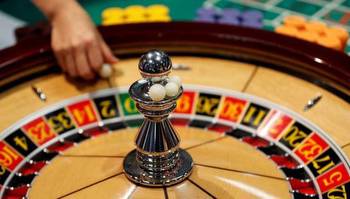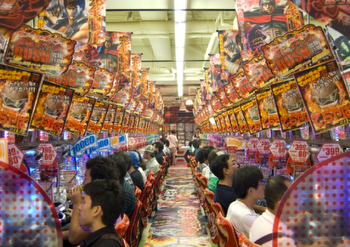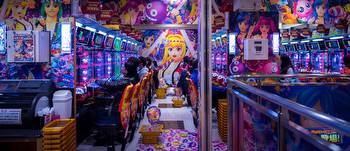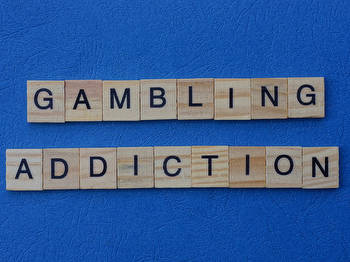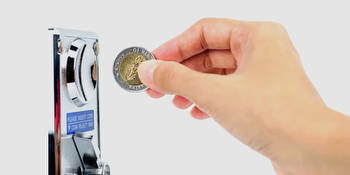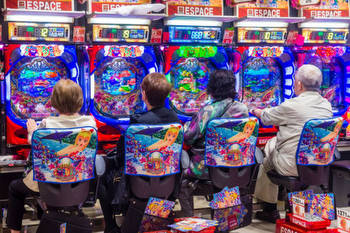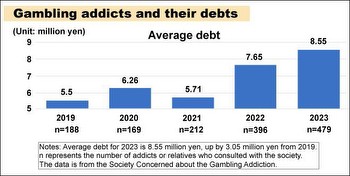Convenience, instant thrill of online casinos lure young Japanese people amid pandemic

TOKYO -- In the wake of the arrest of a 24-year-old man who claims to have gambled away 46.3 million yen (about $363,000) in coronavirus relief money that a western Japan town mistakenly deposited into his account, the incident raises a simple question: Can a person use up nearly 50 million yen at an online casino in a little over 10 days?
According to a lawyer representing Sho Taguchi, 24, a resident of Abu, Yamaguchi Prefecture, who stands accused of computer fraud, the suspect repeatedly withdrew the overpaid money from his account almost every day from April 8, when the Abu Municipal Government made the blunder. By April 18, his account's balance stood at less than 70,000 yen (about $550).
While it's not clear whether Taguchi was a gambling addict, if he did gamble away the entire sum at an online casino, it translates to him betting around 4 million yen (about $31,000) per day.
According to a group providing support to gambling addicts, there has been a rising number of young people in Japan who have become addicted to gambling at online casinos during the coronavirus pandemic.
"The biggest appeal of online casinos is that they can be played without limits around the clock, which at the same time is scary," a 30-year-old office worker who has gotten addicted to online casinos told the Mainichi Shimbun. "Compared to pachinko and horse racing, players can get a thrill out of seeing their win or loss in an instant (at online casinos)," he said.
The 30-year-old got into gambling about 10 years ago after he started playing at pachinko parlors. When he had no money left for betting, he took out consumer loans to feed his habit. Now he earns around 700,000 yen (approx. $5,500) a month, but his savings are next to nil as he pours his money into gambling.
It was around three years ago that he encountered online casinos. There are all sorts of gaming options on offer on online casino sites, from slot games to table games, and players bet using credit cards or cryptocurrency. In Japan, the act of gambling at places other than public gambling establishments is deemed illegal, but because these online casino sites are set up by companies based overseas for Japanese customers, they effectively go unchecked.
A reason the 30-year-old cannot find his way out of his online casino addiction is its dynamics. He says he sometimes wins a little over 100,000 yen (about $790) at just a single spin of a roulette wheel.
Yet he has also experienced pain. "Online casino sites appear to be a good bargain for players at first glance, but there are actually various restrictions once you start playing there," the office worker explains. Nonetheless, he says the convenience and thrills of online casinos beat their risks. "I can quickly lose money (in a game), but it's hard to quit," he said with a sigh.
So how can one break dependence on online gambling? A group of young people who once suffered from gambling addictions are sharing their experiences via social media to prevent others from going through similar hardship.
Tatsuya Kishi, 33, is one of these people. He got into pachinko and horse racing after playing slot games at video arcades when he was around 10 years old. He now shares his experiences under his own name on Twitter and YouTube, explaining how he kicked his gambling addiction.
Kishi recounts that his debt began to snowball after it became possible to purchase betting tickets online. "In addition to the convenience of betting from home, you can take out consumer loans with just a smartphone to get money for gambling, which makes you lose the sense of 'using money.' This boosts online gambling addictions," he said, pointing to the high affinity between the internet and gambling.
After undergoing specialized treatment, Kishi managed to quit gambling about three years ago.
"Japan still lacks programs for curing addicts. They cannot overcome their addictions unless they get others around them to understand that addictions are diseases requiring treatment," he said.
(Japanese original by Hidenori Kitamura, Tokyo City News Department)









